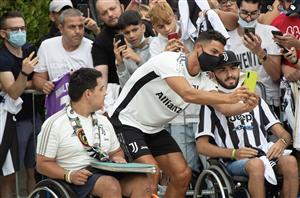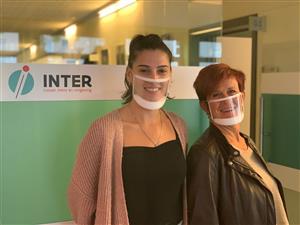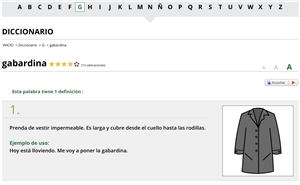Search Results
Search
Filter results
Advanced Filters
Your search returned 314 Solutions
-
A co-working model of employment
CHANGE is an international human rights organisation run by disabled people and employs people with learning disabilities as equal employees. They develop accessible resources, deliver training and run projects. The "Co-working Model of Employment" ensures that two people share responsibility and work together in an inclusive way.
CHANGE, A co-working model of employment, United Kingdom -
SWIFT 9:2012 UNIVERSAL DESIGN FOR ENERGY SUPPLIERS
The "Standard SWiFT 9:2012 Universal Design for Energy Suppliers" and its respective toolkit has been the first standard worldwide, which provides clear guidance for energy suppliers to make their communications accessible. It includes all written, face-to-face, electronic or web-based communication.
Commission for Energy Regulation, Accessible services for energy customers, Ireland -

Audio-descriptive commentary for blind and partially sighted people in football stadiums
The ADC programme of the NGO CAFE in the United Kingdom, trains soccer commentators to provide audio-descriptive commentary (ADC) in English and in the local language. The broadcast is via an FM radio frequency, and reception is via proprietary equipment or headsets provided on-site.
CAFE - Center for Access to Football in Europe, ADC Programme, United Kingdom -
Effective employment services
Rather than focusing on a person’s functional limitations through work capability assessments, Access to Work focuses on which supports or work environment enable individuals with disabilities to work. Part of this is the "right to control" giving persons with disabilities control over the budgets allocated to them.
UK Department of Work and Pensions, Office for Disability Issues, Effective employment services, United Kingdom -

NGO supporting the government with an accessible response to the pandemic
The Belgian NGO Inter has developed measures to address the isolation of people with disabilities during the pandemic. These include guidelines for social distancing and accessibility of vaccination centres as well as the online platform Circuit Sortie, which brings together both people with and without disabilities for activities in small groups.
Inter Vlaanderen, Fighting Isolation During the Pandemic, Belgium -
Inclusive care worker training
Within the scope of the EU project "Inclusive Care Worker", an inclusive teaching model for qualification in the social sector and support modules for a successful integration into the labour market were developed. It enables persons with learning difficulties and disabilities to choose a care profession.
Lebenshilfe Graz and Surroundings - Voitsberg, Inclusive care worker training, Austria -
Job support for persons with intellectual disabilities
Centum DZWONI is a countrywide initiative, started in 2006, and was the first "non-public" employment agency in Poland. It aims at finding positions in the open labour market for persons with intellectual disabilities. The services are free and include counselling, training, practice and individual support by a job coach.
Centrum DZWONI - Center for Vocational Counseling and Support for People with Intellectual Disabilities, Job support for persons with intellectual disabilities, Poland -
The Home from Home Apartment offers fully accessible accommodation with aids and appliances to persons with physical and sensory disabilities and their families. It offers independent living in a non-clinical setting for short breaks and general health appointments in Dublin.
Home from Home is a non-clinical setting offering persons with disabilities and their families the chance to stay overnight without having to stay at the hospital. The apartment was designed by persons with disabilities. It offers ceiling track hoists in the bedrooms and provides a fully equipped kitchen and a lounge area.
Muscular Dystrophy UK, Changing Places Consortium, Staying away from home in a non-clinical setting, Ireland -
The transportation and consultancy service enables young persons with disabilities to participate actively in society. The association helps the students to handle bureaucratic tasks and receive exemption from tuition fees.
Through this service young persons with disabilities are enabled to participate actively in society and develop their potential. The service is free of charge and resulted in an increased number of students with disabilities, full participation in academic life as well as enhancement of their visibility in the local community.
Association of Youth with Disabilities of Montenegro, Transport service for students in Montenegro, Montenegro -

Free online Spanish dictionary written according to easy reading guidelines
Diccionario Fácil is a free online Spanish dictionary service developed by Plena Inclusion Madrid, an NGO. It provides definitions according to the Easy Reading Guidelines, validated by people with intellectual disabilities, and also providing employment opportunities for them.
Plena Inclusion Madrid, Diccionario Fácil – Easy Dictionary, Spain